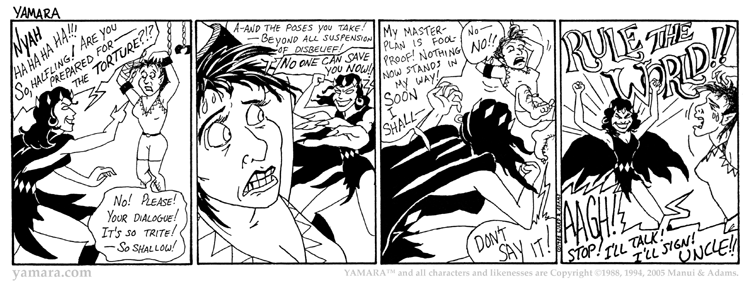Darkspace and Scripted Play
Darkspace is an RPG, though I’m not sure the game would agree. As far as it’s concerned, it is, quote: “an immersive sci-fi experience. Five players take on the roles of the crew of the Triton, an ill-fated cargo ship alone in dark space. The captain, the doctor, the mercenary, the corpo, the synth — one of you is a murderer. Will you solve the mystery of the Triton before the ship’s life support fails?”
I am not going to say anything else about the story to avoid spoilers.
Because this game has spoilers. It has character backgrounds, secret files, and over an hour of pre-made audio with established time-codes that dictate your experience, kind of like the board game Nightmare (or Atmosfear, depending on where you’re from).
Can RPGs have spoilers? Of course they can, there are certainly secrets in every adventure, and Darkspace is, I say again, an RPG. You and your friends play characters in an established setting to tell a story. You may not have stats, dice, or a GM, but we’ve seen stats, dice, and GMs are not compulsory for an RPG. At its most simple and basic structure, you are “playing roles” in the story of Darkspace, a bit like King is Dead or Lady Blackbird.
But — and it’s a big but — Darkspace is the same story, every time. Told differently, to be sure; you may say different things and different relationships may form; but the twists and turns play out the same way. The characters learn the same facts when the audio gives the go-ahead. There is no variation in the story’s structure.
This is the extreme end of railroading. The game has an hour-long mp3 file that dictates exactly how long the game is going to take, and when to open the secret files. The audio will play out the same every time; the players will learn the same information at the same moment.
Is that roleplaying? Acting, maybe, but what influence on the game to the players actually have? If it doesn’t matter what the players say, then why have them say anything?
Well, maybe the point of Darkspace as an RPG isn’t for the players to guide the narrative, but instead react to it. Without giving spoilers, information is revealed at specific time-codes, which means there are times when the characters can make accusations or float theories to varying degrees of confidence. It may turn out later that they were wrong. What happens then? How do you apologize for your accusations? Do you apologize?
When the fall is all that’s left, it matters very much. When reacting is all you have…

Acting is very much a part of RPGs. Not necessarily good acting — I won’t pass judgments on that aspect — but playing pretend in general. As players, we are expected to put ourselves in the mindset of our personas, and act as we think our character would, or perhaps should. There are exceptions, but they are few and far between.
If we look at RPGs as a theatrical play, we can see some interesting parallels. The GM has written for us a script, a story with inciting incidents, hooks, rising and falling action, and hopefully a climax with loot and/or feelings for a chaser. We are the cast of this little play, the actors filling in the roles of heroes.
In a railroaded plot, we aren’t allowed to go off script. The Director yells cut, pulls on the chain, and gets us back in line. It’s easy to say that this is a bad thing, that players should be allowed to behave however they choose, but can they? Can the reckless player just up and punch the president who just pinned a medal to their chest? Can they suddenly reveal their emotional revelations were all lies, their relationships only covers? Could a player decide to join the villain just before the climax? Could half the party turn on the other half?
In some cases, railroading is what happens when a player is unwilling to railroad themselves into the story the group is trying to tell.
As a former actor I can tell you; playing out roles where the dialogue is written out for you can still be fun. For those who are not elated at the opportunity to improvise, it can even be a relief. Not everyone relishes uncertainty, and can feel real stress from realizing later that they “should” have said or done something else.
Does this mean there is a place for straight-up Scripted RPGs? I certainly think so. If games like Darkspace have a place in the RPG medium, than I have a hard time saying that this level of railroading is a bad thing. Consider what it might mean to craft a whole story over the course of one, two, or even three sessions, nudging the characters along between your carefully constructed set-pieces. Give them roles to act out, secure in the knowledge that what they say won’t significantly impact the story itself, but rather only their experience of it.
I can see games about smoke-filled rooms and magic covens. Games where we play nobles at a diplomatic table, drawing the new borders of the kingdoms as events transpire outside. I see generals sitting down over their computer-map, receiving strategic information from the field while directing armor and drone strikes against the horrors from beyond.
It would certainly be difficult, and there might be as many hits as misses, but Darkspace shows us that it can be done.